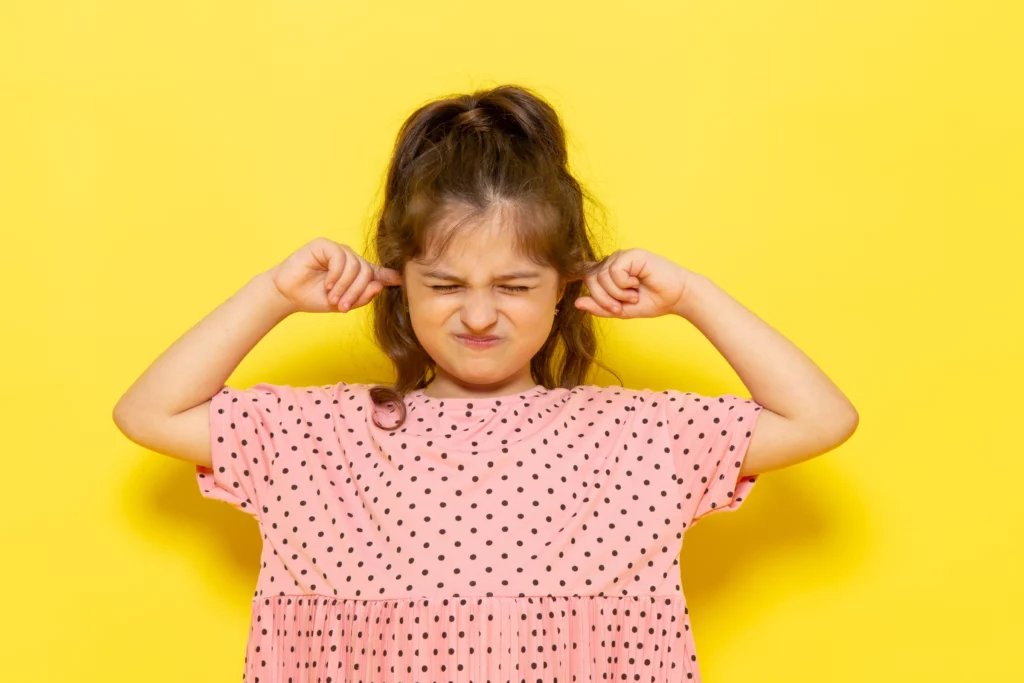Overview
You know what’s the absolute worst? Watching your child suffer from earache and feeling helpless. This situation can make you go directly from consulting your pediatrician or trying a quick relief remedy you heard about.
The doctor suggests going with the first one and getting your child consulted as soon as possible to get the correct diagnosis and well-tailored advice for the best home remedy for your child. Over-the-counter medications like acetaminophen (Tylenol) and ibuprofen can temporarily treat earache. Natural remedies like warm compresses can also treat earache.
This blog provides valuable insights on how to stop earaches in children quickly and effectively while taking all the required precautions.
How can an earache in a child be stopped quickly?
Earache in children can be stopped quickly in several ways, including over-the-counter medications, prescription medications, and some natural remedies. The most frequent ones are over-the-counter medications, including:
Clove and warm compresses are the second options for quick earache relief. Both are considered ancient yet quite effective home remedies.
- You can put a wet cloth dipped in lukewarm water for it to get warmer and hold it for 15-20 minutes on the outside of an ear. It will give a soothing effect, and the earache will stop quickly.
- Cloves can be kept in the mouth, between the molars, without chewing, as they have the unique property of quickly and effectively relieving ear and toothache.
Note: It’s also important to know that not every home remedy will work for you if it worked for someone else. It depends on the patient’s age and medical condition. Consult a healthcare professional in case of severe pain despite the home remedies. The doctor will diagnose the right cause and suggest the best pain relievers for the underlying condition causing an earache.
Prescription medications, like ear drops, can also be prescribed for bacterial or viral infections in the ear that cause an earache. It’s crucial not to use ear drops without a prescription and diagnosis to avoid potential medication side effects.
Prescription medications for an earache
Healthcare providers turn to prescription options when the underlying cause needs to be adequately treated and can’t be resolved with home remedies and over-the-counter options. The choice highly depends on the underlying condition causing the earache.
Some of the prescription medications prescribed by healthcare providers are :
- Ciprofloxacin ear drops: These are prescribed specifically for bacterial outer ear infections (otitis externa), according to the medical condition.
- Hydrocortisone ear drops: Prescribed for inflammatory ear conditions like otitis externa with swelling and itching.
- Ofloxacin ear drops: These are prescribed to treat bacterial outer ear infections (otitis externa) and middle ear infections (otitis media) in people with ear tubes.
- Amoxicillin (antibiotic): Commonly prescribed for middle ear infections (acute otitis media) caused by bacteria
- Augmentin (Amoxicillin/Clavulanate) and Azithromycin: Prescribed for recurrent or severe middle ear infections (acute otitis media) resistant to amoxicillin and needs clavulanate for further activity.
- Cefdinir and Clindamycin: Prescribed for bacterial middle ear infections (acute otitis media), especially in penicillin-allergic patients.
What are the precautions when using home remedies for ear infections in kids?
When practicing home remedies for earache and infections, especially in kids, some precautions should be taken into account, including:
- The first thing to remember is to consult a doctor or pediatrician before trying home remedies on a child. Ear infections cannot be treated at home with home remedies, as they need proper diagnosis and prescription.
- Never use any invasive methods on the child’s ear. Examples include inserting cotton swabs, herbal oils, or anything similar to treat earache and infection. This could possibly damage the ear or worsen the ear infection. Never use home remedies if you suspect the eardrum is ruptured.
- When using a warm compress, do not overdo the bearable temperature for the child, as this can hurt the child and burn their sensitive skin. Always check the cloth’s temperature by touching it to ensure it’s comfortable and safe for the child’s skin.
- Be cautious and stay aware of your child’s allergies. Do not try any home remedy without knowing its suitability for your child, as it might cause an allergic reaction.
- If symptoms worsen or persist after trying a home remedy, discontinue the treatment and seek medical help. Signs of increased pain, fever, or drainage from the ear could indicate the need for medical intervention.
- Maintain good ear hygiene to prevent the spread of infection. Always wash hands before administering any remedy, and keep the child’s ear clean and dry.
How can I help my child with an earache at night?
You can help your child with earache by applying a warm compress to the affected ear. A warm towel or cloth can help soothe pain and reduce inflammation. Make sure it’s not too hot to avoid burns.
OTC like acetaminophen (Tylenol) and ibuprofen can also help your child relieve an earache quickly. Always consult a healthcare provider or pharmacist to ensure you give the correct dose for their age and weight.
“The key to treating earaches in kids is early intervention. Timely pain relief and proper care can prevent the situation from worsening.”- says Dr Richard Honekar.
When to consult a doctor?
In case of earache in your child’s ear, consult your healthcare provider immediately, even before trying any quick home remedies. It could be an infection or sinus pressure that is being felt by your child, which can get worse with home remedies without the known cause.
Your healthcare provider will prescribe the proper medications and guide you in choosing the home remedies that will work best for your child.
FAQs about the ear pain relief for kids
It’s generally safe for a child to fly if the earache is not caused by infection. If the cause of an earache is an infection, it is safe not to fly as the pressure changes might exert additional pressure, which can worsen the pain.
Over-the-counter medications can manage earache without infection during a flight and is safe.
To prevent future earaches in your child, keep their ears clean and dry, especially after showering and swimming, to avoid the probability of an infection. Avoid exposing your child to secondhand smoke, which can irritate the ear’s lining and increase infection risk. Encourage proper hand hygiene to prevent colds and infections, and consider breastfeeding as it helps boost immunity. Ensure your child is up to date with vaccinations, like the flu shot and pneumococcal vaccine, which help reduce ear infection risks. Limit pacifier use after six months, as it can increase ear infection risk.
Yes. Paracetamol is an effective over-the-counter option for treating earache, as It helps relieve the pain temporarily. It’s important to not continue giving paracetamol to your child for a longer period and consult your doctor for persistent pain in your child’s ear to get the accurate diagnosis and treatment option.







